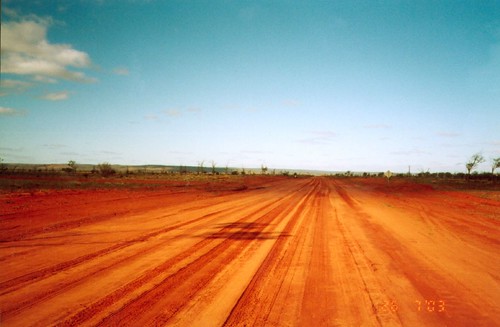The Parallax View

If today was not an endless highway
If tonight was not a crooked trail
If tomorrow wasn’t such a long time
Then lonesome would mean nothing to you at all
Tomorrow’s such a long time is Dylan at his very best: romantic, downcast, too tough to let you tell him that he’s wrong for feeling things, a little suspicious of the conditions under which he’s prone to let himself feel attachment. Dylan in that mood makes me want to hit the road, pull down the highway, and get out a map only after I’m three hours out of the city, cell phone off, dead to the world for weeks.
Dylan sings well about distance: distance was sort of his thing. The Jewish boy from Duluth, masquerading as a Santa Fe cowboy, playing a half-Mexican or half-Irish or Welsh poet in New York was reenacting one of Europe’s deepest myths, the one about the lovesick tramp or traveler. Like Walter Benjamin, Dylan had special access to that myth, by race and by personal experience, one of those chosen to travel. Travel fixed the bounds of his experience: it cemented the quirk of suspicion like a kniving splinter deeep in every love-song. Dylan didn’t sing about places, not places abandoned, left behind, returned to, remembered, cultivated, adored; unlike virtually every other folk-singer of the generation, each of whom left a litany of songs to particular places. I’m thinking about Neil Diamond’s honey-dripping hymns to Rocky Mountain High, or Simon and Garfunkel singing to Frank Lloyd Wright. Those are love-songs to places, real places; they’re spangled with their generation’s hopes of hoisting real utopias on earth, and they’re fashioned by the vatic singing of artists who think they’ve found something.
Dylan never allowed himself that feeling. Think about Kingsport Town or the Mediterranean earthquake that swallowed up an entire port of ambassadors, casinos, soldiers, and troublesome women. Dylan only sang to imaginary places and places he’d never been: or rather, he only sang about one place, an abstract place, the port-town where sailors hung out for a few heartsick and doomed weeks before leaving again. That town was surely Valparaiso and Singapore and Marseilles and Buenos Aires and Bangkok rolled into one: all the dirty haunts of gamblers and lovesick self-made ruins, where men who might otherwise be artists drank themselves into graves. Their lives offered a mirror to Dylan’s own, a worst-case scenario of what might happen to a love-sick artist if followed those strange cravings for the company of strangers, not into song but into travel instead. The broken, gun-slinging, hard-drinking traveler, he sensed, was an artist doing everything other than art.
I always liked Black Diamond Bay the best of these, the Mediterranean version of the same cautionary tale about a traveler getting into trouble, but this time – and perhaps it’s unique for Dylan – the traveler is a girl: “Out on the white veranda … Her passport shows a face from another time and place / She looks nothing like that / All of the fragments of her recent past are scattered on the wild wind.” The woman here is an exhausted and unimpressed woman in men’s clothes, capable of getting herself into a lot of trouble. She’s the girl from the Fitzgerald novel, the one half the men at the hotel are trying to make love to, but who’s been abandoned by the only men who can actually help her, because they themselves are suicidal. As in all the other songs, the character is unmistakably Dylan himself: stuck between the lovers of so many albums who said they loved him but knew they might be wrong. Dylan could still imagine a girl traveler in the same tragic and lonely place, and when he did, his inability to imagine her unlonely was so profound as to blow wide open his existential indifference to his own condition. The traveler’s vulnerability becomes the grounds for articulating the most sentimental carpe diem the twentieth century could deal with: because all travelers are united by the kinship of barely making it, their shared tales of loneliness might be worth singing about after all.










0 Comments:
Post a Comment
<< Home